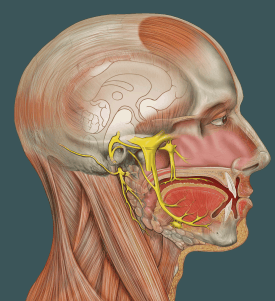Migraine and TMD: A Complex Relationship (that should not be ignored)
Although it’s not news that there’s a relationship between migraine and TMD, it might be a surprise just how complex the relationship is.
TMD refers to temporomandibular disorder/dysfunction, actually a group of disorders that affect (but are not necessarily caused by) the temporomandibular joint (TMJ) and surrounding muscles, nerves, and tissues. TMD may be caused by an injury or a disease such as arthritis. There may also be a connection with structural issues, and even clenching and grinding of the teeth while you sleep.

A 2016 study concluded that the connection between migraine and TMD was complicated further because of other physical symptoms, and the presence of bruxism (clenching/grinding teeth during sleep). Researchers concluded that doctors need to treat both headache/migraine and TMD together.
A study earlier this year asked the question – can the presence of headache disorders, such as migraine, actually predict TMD? In other words, even though migraine may/may not directly cause TMD, does the presence of migraine or another headache disorder tell us that the patient has a good chance of getting TMD later on?
The answer was yes. Patients who had no sign of TMD, but who did have a headache disorder, were far more likely to end up with TMD. The headache condition also tended to worsen in patients who eventually had TMD symptoms. Patients frequently ended up with migraine and TMD.
Researchers again affirmed what I mentioned in our last podcast – headache conditions, migraine in particular, need to be treated (Migraine and Generalized Anxiety Disorder). If they aren’t, they may lead to other conditions. One of those conditions is TMD. And what if the presence of new TMD in turn worsens the migraine? That could may migraine more difficult to treat.
The relationship between TMD and migraine is complex. It’s not a simple case of one causing the other. There may be underlying causes of both.
Doctors and patients need to focus on treating both, and being aware of changing and worsening symptoms so they can be caught early. If migraine or TMD are ignored, or just treated with “painkillers”, patients may find themselves with more pain in the end.

19 April 2017 @ 8:42 am
Hi James,
I have a very simple question about TMD. Who treats this disorder? My neurologist told me to find a specialist in TMJ (in this case, a dentist). I did it and the only thing he did was giving me muscle relaxants. Shouldn’t my neurologist treat this condition? I feel he is ignoring it.
All information I’ve found on your blog has been very helpful to me. Thanks for sharing!!
19 April 2017 @ 10:32 am
That’s an excellent question, Haline. I am a little surprised your dentist would give you muscle relaxants and send you on your way, although of course I don’t know your specific situation.
A dentist is a good option, if they are specialists in TMD. Ideally, someone familiar with your headache condition (I’m guessing you have one) AND TMD would be best.
This is where a pain clinic can be helpful, where actual pain/headache specialists are working together more closely, such as a neurologist, dentist, and physiotherapist.
If you can’t find the “ideal”, it is your responsibility to make sure these health professionals are working together. If you don’t like this dentist, find a new one. Communicate with one doctor what the other is doing. Do your own research.
I’ve found the book What’s Wrong with Me? to be very helpful when it comes to building your own “health care team”.
So – short answer – your neurologist is right, that a specialist can be helpful. But there needs to be communication, and you certainly need to find a specialist who will really take the time to help you find the right treatment.
22 June 2017 @ 9:40 am
We were lucky enough to have a physical therapist notice our family member’s jaw moving off to the side when they talked. He referred us to a specialist dentist who took a lot of TMD and sleep apnea mouth guards and cosmetic dentistry. I had also asked another dentist who they send thier hardest TMD cases to. Both recommended the same specialist dentist. We had to travel and hour, but it was worth the expertise (but not covered by our dental plan). He eased some pain she didn’t know she had on the first visit, by trying a temp cushion in her mouth. Any head pain leads to an eventual migraine for some people.